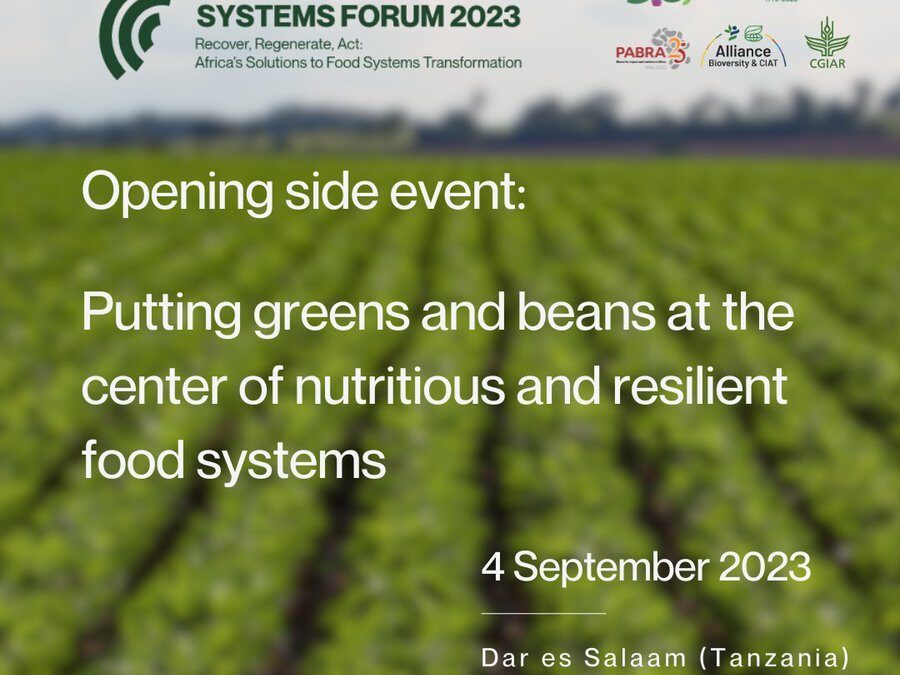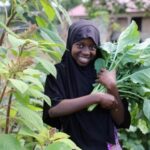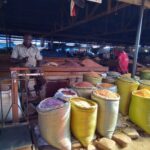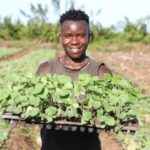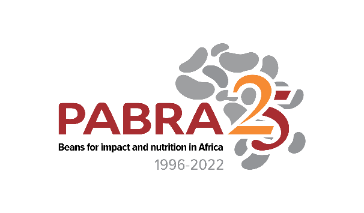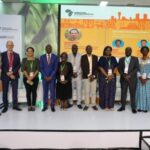Outcomes of the opening side event at the 2023 Africa Food Systems Forum
4 September 2023, Julius Nyerere International Convention Centre, Dar es Salaam, Tanzania
Sub-Saharan Africa has the lowest per capita consumption of fresh vegetables and fruit in the world, and a rapidly growing and urbanizing population that needs more and more nutritious foods. In the face of climatic and economic changes and challenges, promoting increased local production, consumption and trade and of nutrient rich foods offers a clear pathway towards so many global and national goals.
This event highlighted the vital role of vegetables and beans for improving nutritional wellbeing and climate resilience. The World Vegetable Center and the Pan-African Bean Research Alliance partnered to organize this joint event, to highlight that more resistant and nutritious crop varieties and production methods are urgently needed, as part of inclusive value chains that especially benefit women and youth.
Panelists took questions in an hour-long debate on the importance of vegetables and beans for women and youth across the value chain, including inclusivity, nutrition, business development, home gardens, and much more, leading to the most immediate needs for a broad strategy for nutritious and resilient food systems. It concluded by identifying priority actions for achieving food system transformation in Africa.
A menu of priority actions
For greater impact we must mobilize much more investment for research and development of vegetable and bean crops, especially in seed systems
To enhance nutrition we must actively stimulate the increased consumption of vegetables and beans, starting with school feeding programs
To improve livelihoods we must create business opportunities and enterprise development building on diverse food and farming systems
To ensure resilience we must safeguard rapidly declining vegetable and bean biodiversity, and develop and promote more productive, tolerant and nutritious crop varieties
Organized jointly by the World Vegetable Center (WorldVeg) and the Pan-African Bean Research Alliance (PABRA) program of the Alliance of Bioversity and CIAT (ABC)
‘Greens and beans’ are complementary, to diversify farming systems, and diversify diets
There is much focus on staple crops, but vegetables and beans have a key to play for the transformation of African food systems. We need to ensure that people consume more of these nutritious foods. And we need farmers – and especially women and youth – to include more vegetable and beans in their farming systems, to diversity and increase production. But what is needed to ensure that happens? That was the central question for the panelists.
From a donor perspective, that ‘greens and beans’ came together at this event was applauded, and that should continue. We have seen much success, but much more is required. Building partnerships was also highlighted, with PABRA’s Beans is How program as an example of how this is done in practice, as we move from just looking at agriculture, towards a food systems approach. From the perspective of national agriculture research systems, more investment was seen as crucial, to build capacity, and to ensure that new crop varieties are developed that meet farmers’ needs, and market needs. The importance of improving seed systems was raised multiple times. Strengthening extension services was also highlighted, with more demonstration sites to ensure that innovations and new varieties reach the farmers who need them.
A farmer from Kenya told of his work on regenerative practices that was allowing him to sustainably improve his yields, but he would also benefit from more improved varieties that consumers want. And we heard of the work done by PABRA on new bean varieties with improved zinc and iron content. The World Vegetable Center also selects for improved nutritional quality, for example with amaranth. We have a health crisis as well as a climate crisis, and as such, these new varieties have a crucial role to play. Policy changes are needed too, such the promotion of vegetables and beans in school feeding programs as a start. We also need ‘influencers’ to convince people to consume more nutritious foods.
It was also noted that we are losing valuable genetic material every decade, and that this must be collected, conserved, and used. The need for seed is paramount, and the role of genebanks such as that managed by the World Vegetable Center is more important that ever. There are 400 different vegetables in Africa, but only a quarter of them are currently conserved. Much more investment is required to guarantee that we safeguard crop diversity to breed more tolerant and productive varieties for a more resilience future.
The session co-created a vision for a more nutritious and resilient food system for Africa, and steps to achieve this. There are still many challenges, to increase demand for, and supply of, vegetables and beans. But there are also many opportunities, by working to together. And this should begin by working to increase investment, and influencing much needed policy changes.
Co-chairs: Gabriel Rugalema (World Vegetable Center Regional Director for Eastern and Southern Africa), and Jean Claude Rubyogo (Bean Programme Leader for the International Center for Tropical Agriculture and Pan-African Bean Research Alliance Director).
Panelists: Gloria Phekani (Managing Director, Milele Agroprocessing Limited, Lilongwe, Malawi), Joyce Mulila Mitti (Consultant, Zambia), Rose Matiko Ubwe (Center Director, Tanzania Agricultural Research Institute, Arusha), Eliud Birachi (Project Leader and Market Specialist, PABRA and The Alliance, Kigali, Rwanda), Sognigbé N’Danikou (Traditional vegetable conservation and utilization scientist, WorldVeg Eastern and Southern Africa), Paul Newnham (Executive Director, Sustainable Development Goal 2 Advocacy Hub).
Open/close: Marco Wopereis (Director General, World Vegetable Centre), and Maya Rajasekharan (Managing Director, Alliance of Bioversity International and CIAT). Special guest: Rob Betram (Chief Scientist, USAID.
Moderator: Marcel Beira (former news anchor for Benin national television (and regional comms officer, WorldVeg West and Central Africa).
For further information: gabriel.rugalema@worldveg.org and j.c.rubyogo@cgiar.org
Produced by (and pictures by) the World Vegetable Center and PABRA, September 2023

